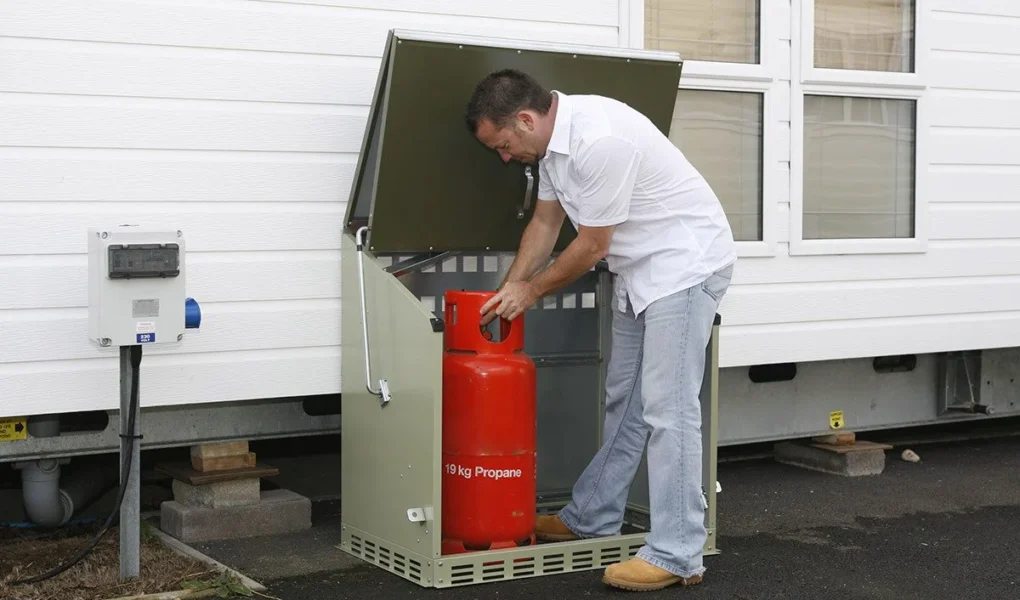Propane is one of the most widely used energy sources in homes, farms, commercial facilities, construction sites, and industrial environments. It’s efficient, clean-burning, and dependable — but like any fuel, it must be handled correctly. Improper handling, aging tanks, outdated equipment, and neglected maintenance are among the biggest causes of propane-related accidents.
This is where a propane company becomes essential. Their role goes far beyond delivery. A reliable propane company actively works to prevent accidents, protect homes and businesses, and keep every user safe. Through inspections, education, updated equipment, and proper handling procedures, they reduce risks before they ever become dangerous.
Here’s a detailed look at how propane companies keep customers safe from improper handling and old equipment.
1. Thorough Safety Inspections to Detect Hidden Risks
One of the most effective ways a propane company prevents accidents is through regular, professional safety inspections. These thorough inspections identify risks that the average person would never notice on their own.
A qualified propane technician inspects:
- Tank integrity and age
- Valve and regulator conditions
- Hoses, connectors, lines, and fittings
- Corrosion, dents, or leaks
- Pressure levels and system balance
- Appliance compatibility
- Ventilation and airflow
- Proper clearance and installation
Small issues — like a loose valve or rust spot — may look insignificant, but they can become dangerous if ignored. A propane company identifies these problems early and fixes them before they create hazards.
2. Replacing Old or Outdated Propane Tanks
Old equipment is one of the most common causes of propane accidents. Many customers continue using tanks long after their safe lifespan, unaware of internal corrosion or weakening metal.
A propane company prevents these dangers by:
- Checking tank manufacturing dates
- Evaluating metal integrity
- Testing for leaks or rust
- Repainting or reconditioning when possible
- Replacing tanks that no longer meet safety standards
Aging or neglected tanks can fail without warning — especially in extreme weather. Professional replacement keeps systems safe and modern.
3. Proper Installation of Tanks and Propane Systems
Improperly installed propane systems are a leading cause of leaks and accidents. A propane company ensures that all installations follow strict safety codes, including:
- Correct tank positioning
- Safe distance from buildings
- Compliance with local fire regulations
- Secure underground or above-ground placement
- Proper regulator and piping setup
- Adequate stability and support
DIY installations or poorly trained workers often take shortcuts. A licensed propane technician follows strict guidelines that keep customers safe year-round.
4. Teaching Customers Proper Propane Handling
Education is one of the strongest tools for preventing accidents. Propane companies help customers understand safe handling practices such as:
- Not storing tanks near heat sources
- Keeping tanks upright during transport
- Knowing how to shut off propane in emergencies
- Recognizing the smell of leaking propane
- Avoiding improper refilling or tank exchanges
- Storing spare cylinders outdoors, never indoors
- Never modifying or forcing propane equipment
By teaching customers what to do — and what not to do — they reduce accidents caused by human error.
5. Emergency Leak Detection and Response
Propane companies use specialized tools to detect leaks early:
- Electronic leak detectors
- Pressure tests
- Soap solution checks
- Ultrasonic leak detection
- Gas monitors for commercial facilities
If a leak is detected, they immediately:
- Shut down the system
- Ventilate the area
- Secure the tank
- Repair or replace equipment
- Test the system again before reactivation
This rapid-response procedure prevents fires, explosions, or toxic exposure.
6. Maintaining Safe Delivery Procedures
Improper delivery handling can be dangerous. A professional propane company trains its delivery personnel to:
- Inspect the tank before filling
- Ensure correct hose connection
- Prevent overfilling (using automatic stop valves)
- Avoid static discharge
- Assess the area for hazards before starting
- Maintain safe distances during filling
- Follow all regulatory filling limits
These steps prevent leaks, tank stress, and dangerous pressure levels.
7. Monitoring Tank Levels to Prevent Overuse or Dry Runs
Running out of propane sounds harmless, but “empty tank” events put stress on equipment. Sudden pressure loss can lead to:
- Air entering the system
- Loss of appliance pilot lights
- Regulator strain
- Safety valve issues
- Leaks during re-pressurization
A propane company prevents this by offering:
- Automatic tank monitoring
- Scheduled delivery programs
- Digital level sensors
- Alerts for low fuel
This avoids emergency situations where tanks malfunction due to improper emptying.
8. Upgrading Customers to Modern Safety Technology
Modern propane systems have far better safety features than older tanks or regulators. A propane company helps reduce accidents by upgrading:
- Old regulators
- Cracked hoses
- Outdated valves
- Unsafe connectors
- Manual equipment to automatic shutoff systems
Newer equipment includes:
- Overfill prevention devices
- Excess flow valves
- High-pressure shutoff valves
- Advanced leak prevention mechanisms
These upgrades dramatically reduce risks.
9. Providing Maintenance for Propane Appliances
Many propane-related accidents come from appliances, not the tank. A propane company inspects:
- Furnaces
- Water heaters
- Fireplaces
- Stoves
- Grills
- Industrial appliances
They ensure proper ventilation, gas pressure, and safe ignition. This prevents CO poisoning, backdrafting, and fire hazards.
10. Ensuring Compliance With Local Codes and Regulations
Propane companies follow:
- National Fire Protection Association (NFPA) standards
- Local building and fire codes
- Transport and storage regulations
- Pressure and leak testing requirements
- Installation certification rules
Compliance protects customers from both accidents and legal penalties.
Final Thoughts
A propane company plays a critical role in preventing accidents caused by improper handling or old equipment. From routine inspections and tank replacements to education, emergency services, and equipment upgrades, they help customers use propane safely and confidently.
With proper guidance, modern tools, and experienced technicians, a propane company ensures that every tank, appliance, and system remains reliable — protecting homes, families, businesses, and entire communities.




